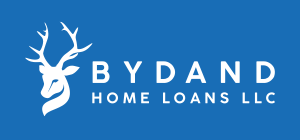
Closing Costs: A Comprehensive Guide
Buying a home is an exciting process, but it's important to remember that there are costs associated with homeownership beyond the principal and interest amounts. Closing costs are one of those costs, and they cover a range of fees related to transferring the title from the previous owner's name to yours. Let’s break down what you need to know about closing costs before searching for your dream home.
How do you read your closing costs?
Closing costs are broken down into two categories. Prepaid expenses and non-prepaid expenses. Prepaid expenses include things like homeowner’s insurance, loan origination fees, and property taxes. Non-prepaid expenses include things like title insurance, recording fees, and appraisal fees. These expenses can vary depending on where you live and the loan you choose. It's always important to read over your closing documents carefully. So that you understand exactly how much money you're expected to pay before you close on your home loan.
What can you expect to pay?
The amount of money that you pay in closing costs depends on several factors such as loan type, location, and lender. According to Bankrate, the average cost of closing on a single-family home was $2,084 in 2020 - a figure that includes both prepaid expenses and non-prepaid expenses. Keep in mind that this figure does not include moving or inspection fees which may add up quickly depending on the size of your new home and how far away it is from your current residence. You can typically expect to pay:
|
|
When are closing costs required?
Closing costs are usually due at closing which takes place after both parties have signed all necessary documents. In some cases, buyers may be able to negotiate with their lender or seller to have some or all of their closing costs paid by either party. However, this is not always possible or practical. So be sure to ask if this option is available when shopping around for lenders or homes.
Bottom Line:
Homeownership has many advantages but it also comes with additional financial obligations. One being closing costs which can add up quickly if not accounted for ahead of time. Understanding what these extra charges entail will help ensure a smooth transition into homeownership. Being informed about these details will help set expectations upfront so that nothing stands between you and your dream home!

